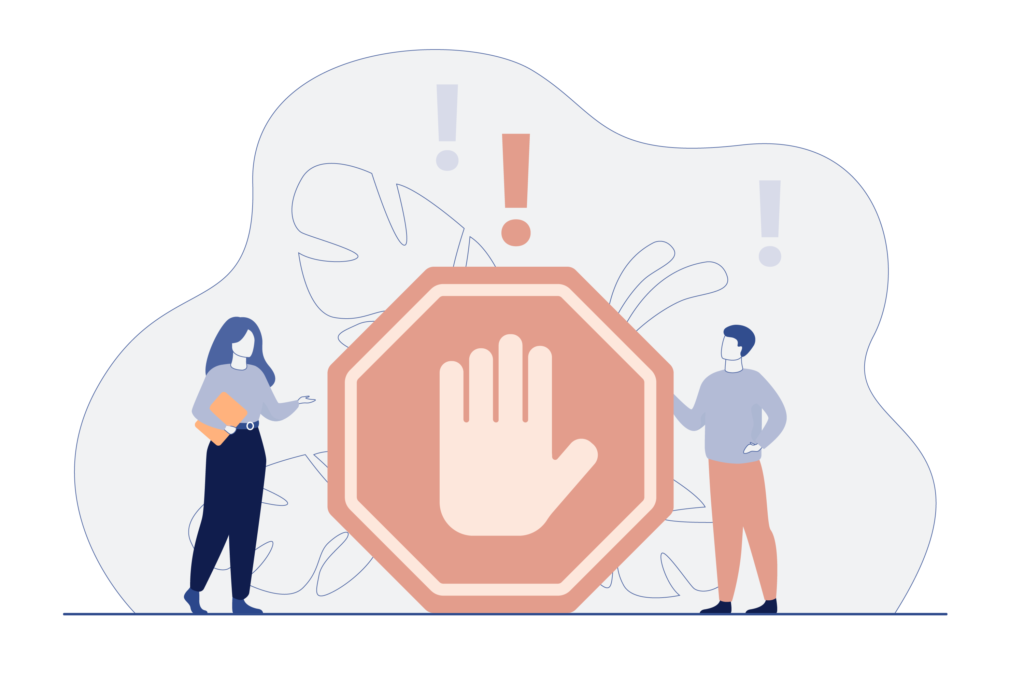Let’s take a moment to think outside the box so we can leverage best practice in order to facilitate robust learnings and eliminate the communication block for the purpose of achieving scalable buy-in from your employees and customers. We’re going to do this within a corporate framework with lots of moving parts in order to empower stakeholders while synergistically disintermediating your company’s retail channels. And we’re going to add to this by creating bleeding-edge solutions to your corporate challenges while facilitating greater operational efficiencies within the paradigm of your company’s core competencies.
Do you have a headache yet?
Seriously, Where Did All This Ridiculous Jargon Come From?
In certain occupations, jargon is not only acceptable, but necessary. So, if you’re a member of the military, a law enforcement official, or an actual scientist, you probably don’t need to read this article. But if you’re in business – the owner of an already prosperous business, or maybe an entrepreneur taking the lean approach to a startup, then you should listen up.
One of the quickest ways to create a communication block between your business and your customers, is to fall back on those often-used but utterly terrible and lazy ‘corporate-speak’ terms that are – frankly – unbearable to most people.
Jargon, like most vices, started out innocently enough. The original intention was to create a culture of mutual understanding within businesses, and an emotional connection that would lead to greater motivation and better profitability. Things began to get absurd around the 1930s and 1940s. There’s an air of elitism associated with jargon. You’re either an insider, or you’re not.
The communication block caused by jargon has only gotten worse. In fact, it’s become such a nuisance that there are articles devoted to listing the most annoying and pretentious examples of business jargon.
The Great Divide: How Jargon Erodes Trust In Your Business
Using jargon – whether deliberately or just out of habit – rapidly erodes trust between you and your employees, and between your company and your customers. Here’s how:
- It creates an implicit hierarchy. To anyone outside of the ‘jargon circle’, the impression is created that they’re excluded, less intelligent, and less valuable.
- It reduces shared culture to empty catch phrases. The cohesion and trust between you, your employees, and your customers, depends on sincerity. And jargon is extremely insincere: it’s actually pretentious psychobabble, and everyone knows it. It impresses nobody.
- It can lead to serious miscommunication. Jargon is deliberately designed to be vague! By using it, you create a very real impression that you’re hiding something or trying to be something you’re not.

Jargon Is A Form Of Laziness
First, the good news: the human brain is optimized for laziness. From an evolutionary perspective, it made sense for our ancestors to conserve energy in the face of scarce resources and harsh environments. There’s a biological advantage to taking shortcuts, and in a very real sense, evolution made our brains lazy.
Our brains are still wired that way. So – reducing clear but time-consuming communication to a snappy catchphrase is a shortcut, and we still do it because of our cave-dweller neural programming.
But here’s why we shouldn’t:
- It quickly becomes habitual – and like any bad habit, it becomes increasingly harder to ditch.
- Losing the original meaning. There’s a story about a woman who always cuts one third of a roast off before putting it into the oven, and when her partner asks her why, she replies that her mother taught her that way. She then asks her mother, who told her that she was taught to do so by her mother. The woman then speaks to her grandmother, who tells her that she only used to do it that way because she had a very small oven and couldn’t fit the roast in any other way! In the same way, we often mindlessly repeat jargon just because ‘other people do it’.
- It communicates lack of originality. By using jargon, we become like that irritating uncle who tells the same joke every time he sees you.
- It annoys and alienates people. Alienating customers and employees is a terrible business practice. Good relationships build good businesses.
What Is A Communication Block, And How Do You Prevent It?
Most jargon out there isn’t a communication aid: it’s a communication block. Anything standing in the way of the recipient receiving and understanding your message is a communication block. The key words here are ‘received’ and ‘understood’:
- Received: this doesn’t only refer to whether a person or group can’t receive your message. It also refers to whether they want to receive your message. Feeling excluded or inferior is a good reason for both employees and customers to turn their backs on you.
- Understood: people don’t just hear what you say, but the way you say it. Don’t talk down to your customers or make them feel ignorant. Meaningless platitudes will chase them away!
Jargon can be extremely frustrating and annoying to anyone who just wants sincere, clear communication. And to a business, this can be really damaging. Here are a few ways you can prevent a communication block:
- Find the simplest way possible to say anything. Make it clear, unambiguous, and free from anything that even sounds like jargon.
- Invite feedback. Ask employees and customers if your messaging ever sounds like corporate word salad. It’s surprising how people appreciate it.
- Invest in better communication. What does that mean? It means hiring a good copywriter to produce great content for your website, your newsletters, and your social media. It means listening to your customer preferences. Speak to them using language that is as plain, sincere and resonates with them.
Jargon Can Also Damage The Online Visibility Of Your Business
One last point: the growth and prosperity of your business depends on customers finding you. And liking you enough to buy from you. For them to find you, your website needs to be relevant to search topics. And search engines will rank your site depending on how accessible and understandable it is. If you understand how to use Google Analytics to increase conversions, you can dramatically increase your sales.
If you use excessive jargon online, you’re using language that your customers aren’t. And the search results they see won’t include you. By using better, clearer communication online, you’re setting yourself apart from other businesses who use tired old phrases. It creates a fresh, attractive and relatable business image.
Time to dump the jargon? We think so.
Book a discovery call today and find out how a skilled virtual assistant can help you reinvigorate your business, free up your time, and help create opportunities for better business growth.





